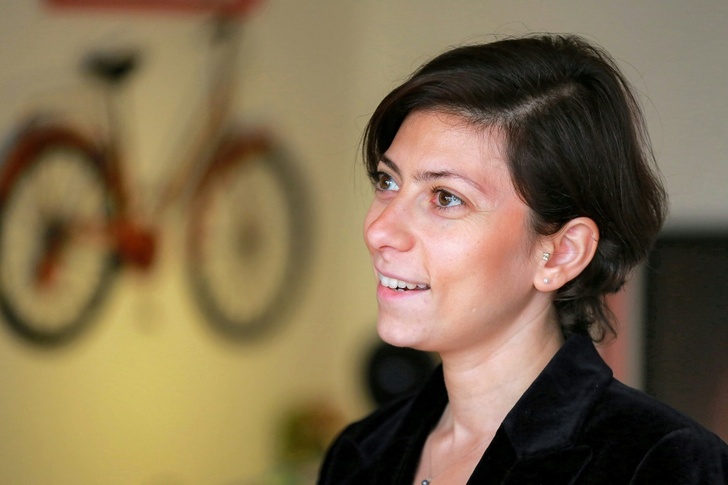Jordanian film "Farha", vehemently criticised in Israel, is based on true events and represents "only a drop in the ocean" of Palestinian suffering, director Darin J. Sallam told AFP.
Released last month on Netflix, "Farha" depicts atrocities against Palestinians during the 1948 conflict following Israel's creation, which Palestinians call the Nakba, or "catastrophe".
The Arabic-language film tells the story of a Palestinian teenager, Farha, whose village comes under attack by Israeli forces.
Her father hides her and, through a crack in a door, she witnesses the execution a family of Palestinian civilians, including two girls.
Sallam, 35, said the plot for her first full-length feature was inspired by a story told to her by her mother, about a Palestinian woman named Radiyeh.
The film recounts "the story of a girl who had been forced to abandon her dreams because of events she had no control over", Sallam said.

In Israel, where discussion of alleged atrocities during the 1948 war remains largely taboo, officials condemned Netflix over the decision to stream the film.
"I wanted to open the world's eyes to this pivotal moment in the history... and to show that this land was not without people," Sallam said, of what is now Israel and the Palestinian territories.
"Rather, it was a land with people who had lives, dreams, hopes and history."
- 'I am Farha' -

The teenage girl tries to persuade her father to let her complete her studies in the city, prepares for a friend's wedding, and picks figs before her village is attacked.
Sallam said she avoided showing violence, with the exception of the unarmed family's killing.
"This scene, which shook the Israeli government, is only a drop in the ocean of the suffering of millions of Palestinians during the Nakba," she said.
Sallam called for more filmmakers to explore this painful chapter in Palestinian history, which "almost never appears in cinema".

"Radiyeh had been locked up by her father who feared for her, and when she was finally able to come out of hiding she went to Syria," Sallam said. "That's where she told the story to my mother."
The filmmaker said she had "lost all contact with this woman", a resident of the war-ravaged Palestinian refugee camp of Yarmouk, north of Damascus, since fighting in Syria began in 2011.
After one screening of the film in the United States, an audience member spoke to Sallam.
"A woman aged in her eighties who had survived the Nakba told me: 'I am Farha'", she said.
- 'Lies' -
Former Israeli minister Avigdor Lieberman, who had served in government until Benjamin Netanyahu returned to power last month, said in November the film's "whole purpose is to create a false pretence and incite against Israeli soldiers".
Chili Tropper, Israel's former culture minister, said "Farha" shows "lies and libels".

"My own father survived the Nakba. He... fled to Jordan with his parents."
Sallam's father was born in Ramle, in what is now central Israel.
Most of its Arab residents fled or were forced from their homes during the 1948 conflict, as were more than 760,000 Palestinians across the country.
Many of their descendants live to this day in Jordan, Syria and Lebanon.
More than half of Jordan's population of about 10 million people are of Palestinian origin, the result of mass displacement in 1948 and during the 1967 Six-Day War, when Israel occupied the West Bank and east Jerusalem.
Last year, Israeli director Alon Schwarz faced backlash over his documentary on an alleged 1948 massacre of Palestinians in Tantura, a Mediterranean village in the northwest of what is now Israel.
Calls have mounted in recent years, including among Israeli activists, for greater transparency about the conduct of nascent Israeli forces during the 1948 conflict.
kt/at/ami/fz/pjm
© Agence France-Presse
Your content is great. However, if any of the content contained herein violates any rights of yours, including those of copyright, please contact us immediately by e-mail at media[@]kissrpr.com.
Source: Story.KISSPR.com

